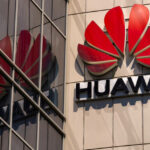Nigeria’s pension industry, with trillions of naira in assets under management, is widely regarded as one of the country’s most important financial pillars. Experts believe it could power long-term capital formation by funding infrastructure, housing, and industry while guaranteeing retirement security for millions of contributors. But analysts warn that this potential will remain underutilised unless Pension Fund Administrators (PFAs) move beyond short-term practices and embrace global investment standards.
According to analysts, reforms should prioritise fair value accounting, wider asset allocation, and the deployment of modern portfolio management tools. “A pension fund is not a savings account. It is a multi-decade investment in the future,” one financial expert explained. “If we get it right, pension funds will stop crawling like Danfos stuck in Third Mainland traffic and start cruising like a Chinese express train—steady, long-term, and built for the journey ahead,” he added.
Globally, diversification through offshore investing is considered best practice, helping funds reduce concentration risks and enhance returns. Nigerian PFAs, industry watchers say, stand to gain from such exposure. However, the Central Bank of Nigeria (CBN) remains reluctant to allow large sums of pension funds to leave the country, citing pressure on foreign reserves. As a result, the debate is less about whether offshore investments make sense and more about whether Nigeria can afford them at this time.
Nigeria’s rigid withdrawal framework has long been a source of frustration. Currently, contributors can withdraw only 25 per cent of their balance after four months of unemployment and must then wait five years before accessing more. In contrast, South Africa operates a “Two-Pot System,” where contributions are split into a retirement pot and an emergency pot. The latter can be accessed once a year, subject to tax.
Analysts argue that adopting a similar model in Nigeria would strike a balance between long-term savings and short-term financial relief. “Think of it like Nigerian jollof and plantain,” one expert said. “The jollof is for the future; the plantain is the quick bite when hunger cannot wait. Both are needed on the plate,” he said.
Transparency also remains a major concern. At present, PFAs and custodians value their own assets—an arrangement that global markets consider outdated. Independent valuation firms such as RisCura, Alexander Forbes, and the Big Four audit firms are widely used internationally to verify pension assets, particularly illiquid ones like infrastructure and private equity. Analysts insist that adopting such practices in Nigeria would strengthen trust and reassure contributors that their savings are being properly accounted for.
The system, designed in 2004, was built for an era of government bonds and deposits. Today’s global pension funds rely on advanced platforms like BlackRock’s Aladdin and SimCorp Dimension to monitor risk in real time and match assets with long-term liabilities. Nigerian PFAs, however, still rely heavily on spreadsheets and monthly reports.
ALSO READ: I never told anyone I wanted third term, Obasanjo opens up
The obstacle is cost. These platforms are expensive, and smaller PFAs may find them unaffordable. Analysts warn that industry consolidation, though controversial, may be inevitable if Nigeria is to achieve world-class pension management.
ARISE IIP Secures $700m Funding Deal, Welcomes Vision Invest as Shareholder
ARISE Integrated Industrial Platforms (ARISE IIP), the developer of the IPR Free Zone in Ogun State, has closed a landmark $700 million capital raise, one of the largest private infrastructure funding deals in Africa. The transaction also welcomes Vision Invest, a leading Saudi Arabian infrastructure investor, into its shareholder base—reflecting growing international confidence in Nigeria’s industrialization and Africa’s broader growth prospects.
The funding, which includes both primary and secondary components, will accelerate ARISE IIP’s expansion across the continent and support its mission to build green, inclusive, and sustainable industrial ecosystems.
With this milestone, ARISE IIP’s institutional shareholder base now comprises founding investors—Africa Finance Corporation (AFC) and Equitane—alongside the Fund for Export Development in Africa (FEDA), the impact investment arm of Afreximbank, and now Vision Invest.
Gagan Gupta, Founder and CEO of ARISE IIP, described the transaction as a bold step towards industrial self-reliance.
“ARISE has always believed in Africa’s promise and the talent driving its growth. The partnership with Vision Invest and the continued support of our institutional shareholders will help us build resilient, self-sustaining industrial ecosystems that deliver long-term value,” Gupta said.
Samaila Zubairu, President & CEO of Africa Finance Corporation and Chairman of ARISE IIP, said the deal highlights the power of aligning global capital with Africa’s ambitions.
“ARISE IIP has demonstrated what is possible when international investment aligns with Africa’s development goals. We are proud to deepen our partnership and support ARISE IIP as it scales industrial transformation across the continent,” Zubairu noted.
Afreximbank’s President, Professor Benedict Oramah, hailed the transaction as a major boost for Africa’s export and manufacturing potential.
“With this capital increase, ARISE IIP will become an even stronger partner of Afreximbank in the drive to promote export manufacturing and industrialization in Africa,” Oramah said.
Echoing this optimism, Marlene Ngoyi, CEO of FEDA, reaffirmed her institution’s commitment:
“ARISE IIP exemplifies the kind of platform that drives sustainable growth and regional integration across Africa. We are pleased to participate in this historic capital raise.”
For Vision Invest, the deal marks its first direct investment in Africa, signaling the Gulf region’s growing interest in the continent’s industrial landscape.
“This marks our first direct investment in Africa and a natural extension of our values and impact investment philosophy, which centres on the socio-economic development of the communities in which we invest,” said Mohammad A. Abunayyan, Chairman of Vision Invest.
Omar N. Al-Midani, President and CEO of Vision Invest, added: “ARISE IIP represents the ideal platform for Vision Invest’s entry into Africa, combining world-class execution, an institutional shareholder base, and an operating model that focuses on in-country beneficiation. We look forward to building long-term value together.”
Standard Chartered Bank and Norton Rose Fulbright served as exclusive advisors to ARISE IIP, while EFG Hermes and Linklaters advised Vision Invest on the deal.
The investment underscores confidence in ARISE IIP’s ability to deliver transformative infrastructure projects that strengthen local value chains, boost exports, and create jobs across Africa.
Headquartered in Dubai, ARISE IIP operates in more than 14 countries, where it designs, finances, builds, and operates bespoke industrial zones tailored to local economies. Its broadened shareholder base and capital injection now position the company as a catalyst for Africa’s next phase of industrial growth, economic diversification, and regional integration.
For Nigeria, the partnership also represents a boost to Ogun State’s industrial aspirations and the country’s wider efforts to attract foreign direct investment beyond oil. The ARISE IIP–Vision Invest collaboration is expected to drive large-scale industrial transformation—showcasing how global capital, regional expertise, and local resources can converge to build Africa’s economic future.
WATCH TOP VIDEOS FROM NIGERIAN TRIBUNE TV
- Relationship Hangout: Public vs Private Proposals – Which Truly Wins in Love?
- “No” Is a Complete Sentence: Why You Should Stop Feeling Guilty
- Relationship Hangout: Friendship Talk 2025 – How to Be a Good Friend & Big Questions on Friendship
- Police Overpower Armed Robbers in Ibadan After Fierce Struggle






